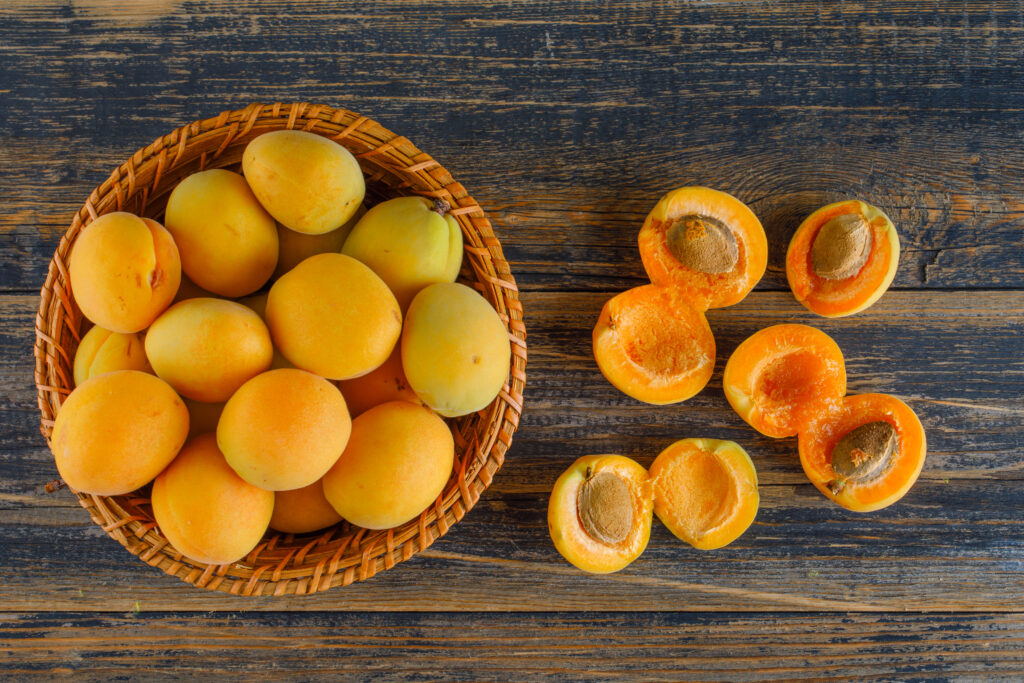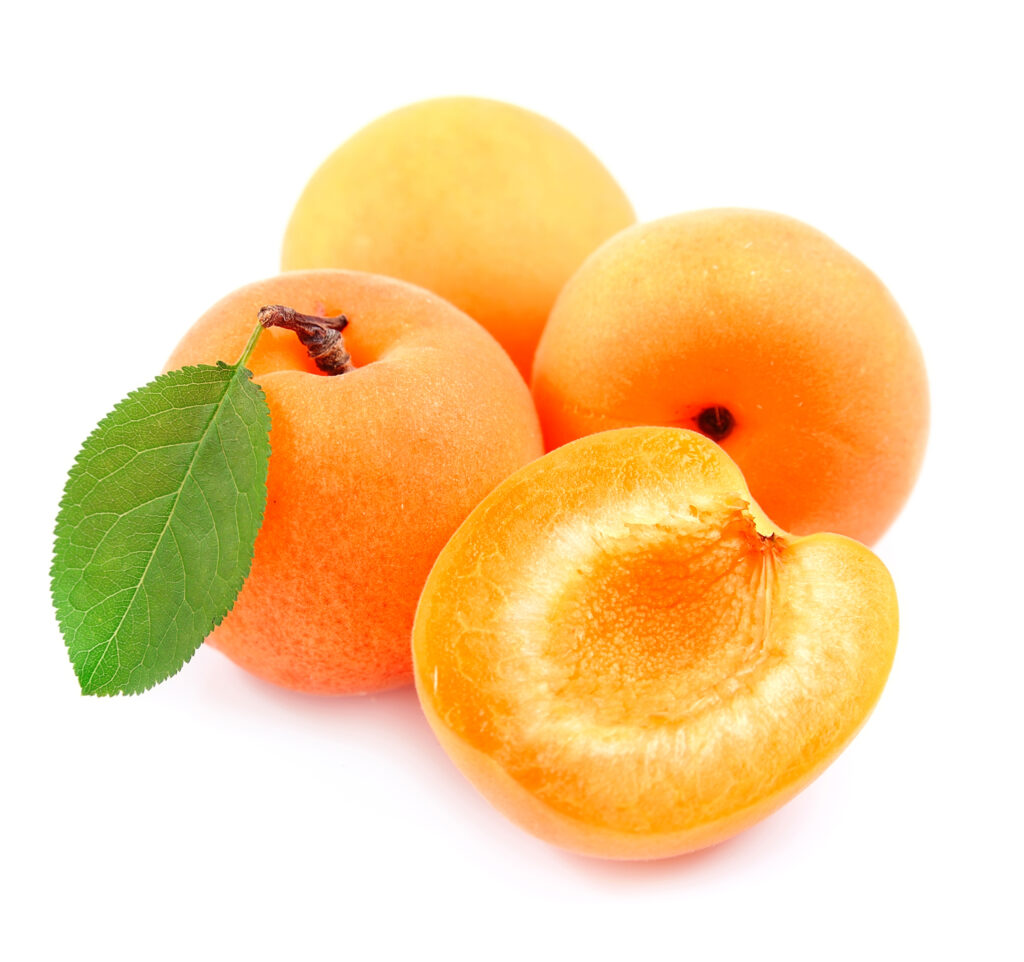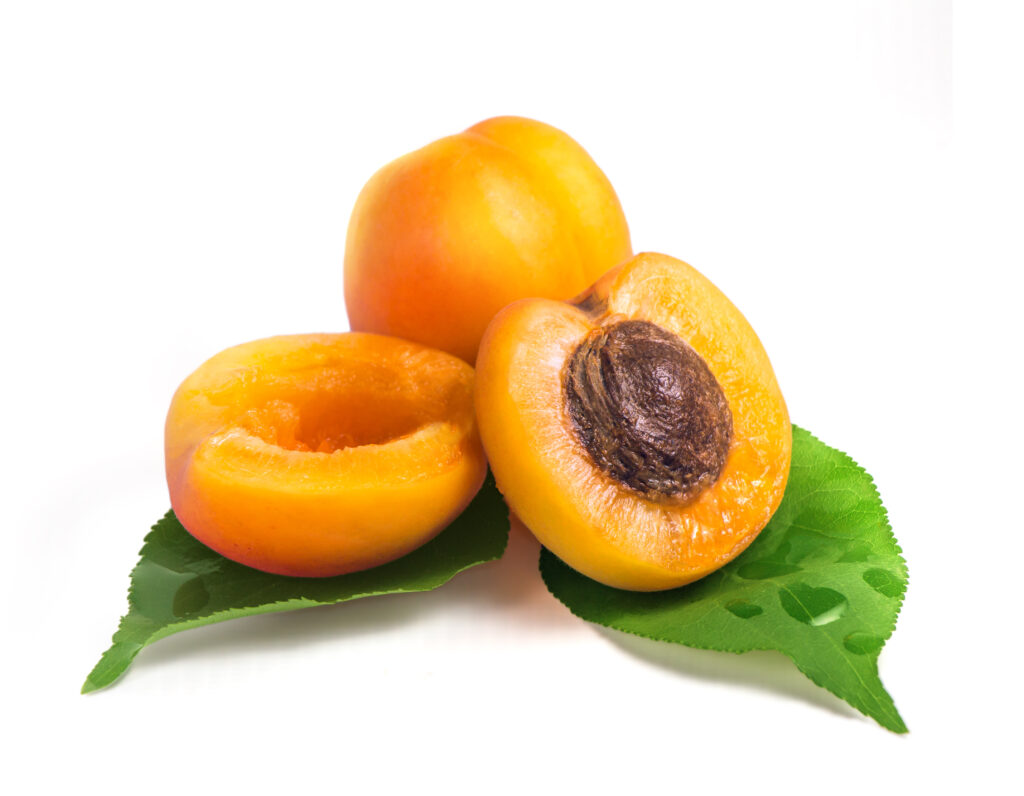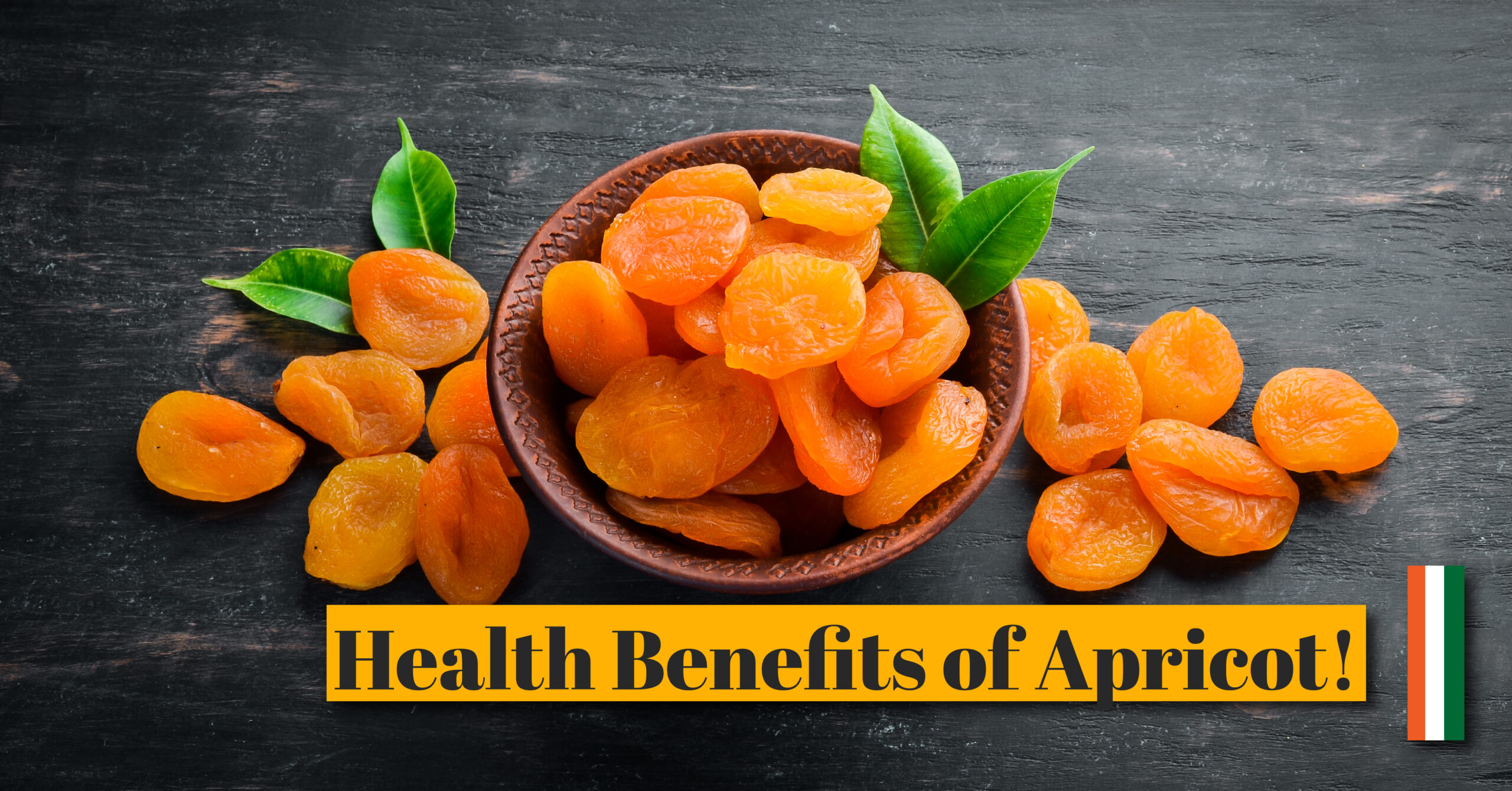Introduction:
With their rich golden-orange color and sweet-tart flavor, apricots are a nutritional powerhouse that enhances general wellbeing in addition to being a delectable delight for the senses. These little, velvety fruits are a great complement to a well-balanced and nutrient-rich diet because they are full of vitamins, minerals, and antioxidants. This blog post will discuss the many health advantages of apricots and the reasons why including them in your regular diet can help you lead a healthier lifestyle.

- Rich Source of Vitamins:
Vitamins A, C, and E are the most abundant and beneficial nutrients found in apricots. For the immune system to function properly, skin health, and healthy vision, vitamin A is essential. Vitamin C functions as a potent antioxidant to shield the body from oxidative stress and support a strong immune system. Furthermore, vitamin E contains antioxidant qualities that help fight free radicals and play a part in skin health. - Boosts Heart Health:
Fruits that are good for the heart and cardiovascular health are apricots. They include potassium, a mineral that balances the body’s sodium levels to help control blood pressure. Sufficient consumption of potassium is linked to a decreased likelihood of hypertension and, in turn, a decreased risk of cardiovascular disease. Additionally, apricots’ high fiber content helps to keep cholesterol levels within normal ranges. - Aids Digestive Health:
Apricots’ high fiber content is good for your digestive system. By giving the stool more volume, fiber helps to maintain regular bowel motions and prevent constipation. By including apricots in a diet high in fiber, one can lower the risk of gastrointestinal problems and discomfort while also supporting a healthy digestive system. - Supports weight management:
Apricots can be a useful tool for people who are trying to control their weight. They’re a filling and healthy snack because of their high fiber content and low calorie count. Because apricot fiber increases feelings of fullness, it can help regulate appetite and lower total calorie consumption. Apricots can be a wise addition to any well-balanced diet for people trying to lose weight or keep it off. - Antioxidant Protection:
Antioxidants such as lutein, zeaxanthin, and beta-carotene are abundant in apricots. These substances are essential for eliminating free radicals, which are erratic chemicals that have the potential to harm cells. Apricots protect overall cellular health and help prevent chronic diseases, such as some forms of cancer, by scavenging oxidative stress. - Bone Health Enhancement:
Calcium and phosphorus are two minerals found in apricots that are vital for strong, healthy bones. While getting enough of these minerals is essential throughout life, it becomes even more critical as people age. Apricots can increase bone density and lower the risk of diseases like osteoporosis when incorporated into the diet. - Natural Skin Radiance:
Apricots are good for your skin since they contain both vitamins A and E. Vitamin E functions as a natural antioxidant, shielding the skin from harm brought on by UV radiation and external influences, while vitamin A encourages skin cell turnover, keeping the skin soft and supple. A glowing, healthy complexion can be achieved by including apricots in your diet. - Enhances Eye Health:
Beta-carotene, which is a precursor to vitamin A and is important for maintaining healthy vision, is abundant in apricots. A decreased risk of age-related macular degeneration (AMD) and other eye conditions has been associated with adequate consumption of beta-carotene. Consuming apricots as part of your diet will help maintain eye health and help you keep your vision as you age. - Natural Immune System Support:
Because apricots contain both vitamin C and vitamin A, they are a potent immune system booster. These vitamins are essential for the development and operation of immune cells, which aid the body’s defense against diseases and infections. Frequent apricot consumption helps support a strong and resilient immune system.

Types Of Apricot
- Moorpark Apricot:
- Characteristics: One of the most well-known apricot types is Moorpark, which is noted for its sweet and rich flavor. Its texture is rich and soft, and its color is a striking deep orange.
- Best Use: Perfect for baking, canning, and fresh food consumption.
- Tilton Apricot:
- Characteristics: Medium to large in size, Tilton apricots have a vibrant orange color and a well-balanced sweet-tart flavor. Their robust and luscious meat makes them highly valued.
- Best Use: Ideal for canning, preserving, or for fresh consumption.
- Harglow Apricot:
- Characteristics: This apricot type is distinguished by its bright orange hue, smooth skin, and medium size. It tastes pleasant and fragrant.
- Best Use: Perfect for using in recipes, such as jams and pastries, and for fresh eating.
- Harglow’s Elberta Apricot:
- Characteristics: Elberta apricots, a subvariety of Harglow, with a firm texture, a somewhat larger size, and a well-balanced sweetness and acidity.
- Best Use: Perfect for consuming raw, drying, or transforming into other kinds of apricot goods.
- Harglow’s Royal Blenheim Apricot:
- Characteristics: The tiny to medium-sized Royal Blenheim apricots have a yellow-orange color and a very sweet, aromatic taste.
- Best Use: Because of their strong flavor, they are frequently chosen for drying, but they taste excellent when eaten fresh as well.
- Blenheim Apricot:
- Characteristics: These small to medium-sized apricots, also called Royal Blenheim, have a golden-yellow peel and a rich, sweet flavor.
- Best Use: extensively used for both fresh eating and canning, canning, and preserving apricots.
- Trevatt Apricot:
- Characteristics: Medium to large in size, Trevatt apricots have a silky orange exterior and a flavor that is a perfect blend of sweet and acidic.
- Best Use: Ideal for dehydrating, consuming raw, or used in a variety of culinary processes.
- Puget Gold Apricot:
- Characteristics: Puget Gold apricots have a yellow-orange exterior and luscious, delicious flesh. They are smaller than some other types.
- Best Use: Perfect for preparing sauces and jams, fresh food, and desserts.
- Harlayne Apricot:
- Characteristics: Medium-sized and vivid orange in color, Harlayne apricots have a mildly sweet taste. Their texture is renowned for being silky.
- Best Use: Fit for both fresh eating and a variety of culinary applications.
- Mexcot Apricot:
- Characteristics: Mexcot apricots are a relatively recent kind; they tend to be bigger and have a crimson blush on their skin. They possess a lovely and tangy taste.
- Best Use: Perfect for tossing with salads or desserts and consumed fresh.

Conclusion:
Including apricots in your regular diet is a tasty and nourishing way to promote general health. These bright fruits provide a multitude of benefits, ranging from heart health promotion and digestive support to immune system boosting. Apricots can be a versatile and enjoyable complement to a well-balanced lifestyle, whether they are consumed fresh, dried, or in culinary creations. Thus, why not appreciate the virtues of apricots and the health advantages they offer to your diet? Your body will be appreciative.


